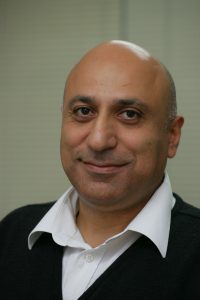Fast-Charging Batteries
Charging speed is the bottleneck limiting the success of electric vehicles. Researchers from Israel and Germany have made a breakthrough.
Fast charging is considered to be a key requirement for widespread economic success of electric vehicles. Current lithium-ion batteries (LIBs) offer high energy density, but while they enable sufficient driving range, they take considerably longer to recharge than traditional vehicles. Multiple properties of the applied anode, cathode, and electrolyte materials influence the fast-charging ability of a battery cell.
In a review published this month in the high impact Journal Advanced Energy Materials, an international team of researchers considers in detail the physicochemical basics of different material combinations, and identify the transport of lithium inside the electrodes as the crucial rate-limiting steps for fast-charging. The group* headed by Professor Yair Ein-Eli and graduate student Ms. Natasha Ronit Levy from the Technion Department of Materials Science and Engineering, and Professor Jürgen Janek and Dr. Manuel Weiss from Giessen University (Institute of Chemical Physics, Germany), identified that lithium-ion diffusion and migration within the active materials inherently slows down the charging process and impose high resistivity.
In addition, concentration polarization by a slow lithium-ion transport within the electrolyte phase in the porous electrodes also limits the charging rate. Both kinetic effects are responsible for lithium plating observed on the graphite anodes. Such plating of metallic lithium may lead to a dangerous thermal runaway, resulting in explosion and fire. The conclusions drawn by the researchers from potential and concentration profiles within LIB cells are complemented by extensive literature surveys on anode, cathode, and electrolyte materials. They analyzed advantages and disadvantages of typical LIB materials and offered suggestions for optimum properties on the material and electrode level for fast-charging applications.
* The research groups that took part in the review work were part of the 4th German-Israel Batteries School held in Berlin in 2019: from Israel – Prof. Yair Ein-Eli [Technion] and Prof. Doron Aurbach [Bar-Ilan University]; From Germany – Prof. Jürgen Janek [Giessen University], Prof. Martin Winter [Münster University], and Prof. Margaret Wohlfahrt-Mehrens [Energy Research Center, Ulm]. Financial support was provided by the following entities and foundations: the German Federal Ministry for Education and Research (BMBF) within GIBS 4 bi-national workshop, the Federal Ministry for Economic Affairs and Energy (BMWi), the Israeli Ministry of Science and Technology (MOST), the Planning & Budgeting Committee/Israel Council for Higher Education (CHE), and Fuel Choice Initiative (Prime Minister Office) within the framework of “Israel National Research Center for Electrochemical Propulsion” (INREP 2) and by the Grand Technion Energy Program (GTEP).
Click here for the paper in Advanced Energy Materials



